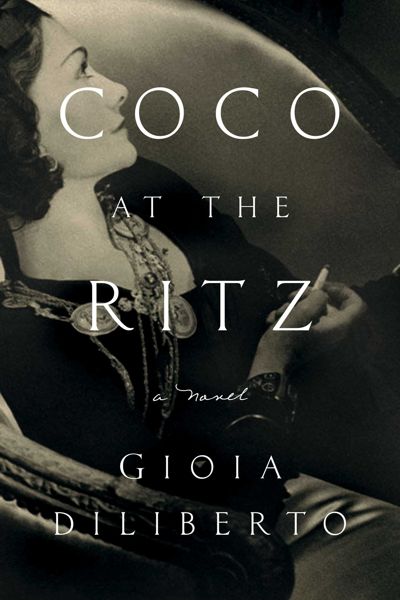
Blurb
A riveting and prismatic novel of the eternally enigmatic Coco Chanel in the aftermath of World War II.
Though her name is synonymous with elegance and chic, the iconic Coco Chanel had a complicated dark side, and in late August 1944, as World War II drew to a close, she was arrested and interrogated on charges of treason to France.
Many of the facts are lost to history, partly through Chanel’s own obfuscation, but this much is known: the charges grew out of her war-time romance with a German spy, and one morning two soldiers from the French Forces of the Interior—the loose band of Resistance fighters, soldiers and private citizens who took up arms in the wake of the Liberation of Paris—led Chanel from her suite at the Ritz Hotel in Paris to an undisclosed location for questioning.
What transpired during her interrogation, who was present, and why she was set free when so many other women who’d been involved with German men (willingly or otherwise) had their heads shaved or were imprisoned, remains a mystery.
In this brilliantly insightful and compulsively readable novel from the author of I am Madame X, Gioia Diliberto explores the motivations of this complex woman and portrays the gripping battle of wits that could have been her interrogation. Was Chanel truly a collaborator?
Though the Occupation of France offered a stark contrast between good and evil, few people are wholly heroes or villains in wartime. Most citizens, as the writer André Gide noted, were like old shoes floating in murky waters: battered and torn, riding the turbulent flow, just trying to survive.
By turns raw and vulnerable, steely and flawed, Chanel emerges from these pages as a woman who owns her decisions, no matter the consequences. Rich with history and filled with emotional truths, Coco at the Ritz is a story about the choices one woman made when the stakes were the highest. In today’s world, it is a cautionary tale about the necessity of standing against evil when it stares you in the face.
My Review
I’ll start this review by admitting I knew next to nothing about Coco Chanel before picking up this book, so I came with no preconceived notions. I assumed she was an arrogant socialite, and this pretty much held true. This book also shows her human side—her fallibility—and gives us a glimpse of when she wasn’t in control. The Nazis have moved into Paris and pushed her out of her apartment in the Ritz, so she is forced to move into the servants quarters. It’s better than nothing, and she is somewhat mollified by the attention given her by the gorgeous Spatz von Dincklage. His flirtation was guaranteed to flatter Coco who, at sixty years old, feels way past her prime. The mysterious Spatz becomes a her lover and they spend much of their time together in a very public way, which she tries to pretend does not hurt her reputation. It doesn’t help that his movements are secretive, his alleged job with the Nazis unconvincing, and her friends view him with condemnation. The more time she spends with Spatz, the more vulnerable she feels:
First Misia, then Helene Dessoffy had planted in her head the idea that Spatz was using her. He said he loved her, but she couldn’t be sure. What exactly did he want from her?
Still, she was too fearful to help Reverdy. In the Metro, she’d seen the posters with the names of Resisters who’d been caught and shot. “My feeling about your flyers hasn’t changed. You’ll have to find someone else to distribute them,” Coco said.
“That’s not why I needed to see you.” Reverdy released the mimeograph lever and rubbed his biceps. “You’re on an official blacklist of collaborators.”
“What?” Coco felt her breath catch.
“The Resistance is keeping track.”
“I’m not a collaborator!”
Of course, whether or not Coco is a collaborator is a matter of opinion. She does her best to stay out of trouble, but little by little Spatz drags her into his world and she finds herself cooperating in small ways. As far as she is concerned, her participation is mostly unwilling, so she’s not guilty of anything. She’s very good at fooling herself, but not the Resistance. Unfortunately, her unwillingness to stick out her neck to save her friends comes back to haunt her, and she finds herself totally powerless in face of the pitiless Germans—and then, once the war is over, the pitiless FFI (French Forces of the Interior). This is an interesting read, and Coco doesn’t come out a heroine—nor does she appear as a villain. She is a lonely, middle-aged woman put into a situation where all the rules have changed.

AMAZON: https://amazon.com/Coco-at-Ritz-Gioia-Diliberto-ebook/dp/B08WM3SYY4